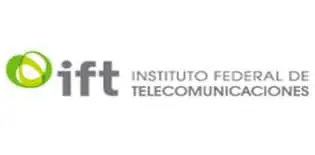What is NOM Certification?
Norma Oficial Mexicana (NOM) refers to a set of technical regulations and standards established by the Mexican government. These ensure product safety, quality, and performance of various products in the Mexican market. NOM compliance is a crucial aspect for businesses looking to distribute or sell their products in Mexico.
Why is Norma Oficial Mexicana Certification Important?
Obtaining NOM certification is crucial for any manufacturer, importer, or distributor who wants to do business in Mexico. Products that do not comply with NOM requirements will be prohibited from entering the country or face significant delays and fines.
Which Products Require NOM Certification?
NOM certification is mandatory for a wide range of products to enter the Mexican market. There are over 2,000 NOM standards covering a wide range of industries, including:
- Electrical and electronic products: Appliances, lighting equipment, power tools, medical devices, telecommunication devices.
- Food and beverages: Processed foods, bottled water, alcoholic drinks.
- Automotive parts and vehicles: Tires, brakes, airbags, car seats.
- Toys: All children’s toys.
- Textiles and footwear: Clothing, shoes, bedding.
- Chemicals and hazardous materials: Paints, solvents, pesticides.
The NOM Certification Process
The process of obtaining certification involves several essential steps, including:
- Identify the applicable NOMs: Research which specific NOM standards apply to your products.
- Testing and analysis: Your product must undergo testing by an accredited laboratory to ensure compliance with the designated NOMs.
- Application and documentation: Submit an application form along with technical documentation and test reports to the relevant Mexican authority.
- Inspection and audit: The authorities may conduct on-site inspections of your manufacturing facilities or product samples.
- Evaluation and issuance: Upon successful completion of all stages, you’ll receive a NOM certificate, authorizing you to display the NOM mark on your product.
NOM Certification Testing
Testing is a crucial component of the NOM certification process. Accredited laboratories conduct various tests to ensure your product meets the required safety and performance standards. These tests may include:
- Electrical safety testing
- Electromagnetic compatibility testing
- Mechanical testing
- Chemical testing
- Environmental testing
NOM Certification Logo and Mark
Products that successfully pass certification are entitled to display the NOM logo and NOM mark. These symbols serve as visual indicators to consumers and authorities that the product meets the required safety and quality standards. The NOM certification logo and mark provide a competitive edge in the market, enhancing consumer trust and confidence in the certified products.
How Much Does NOM Certification Costs?
The costs associated with NOM certification can vary based on factors such as the type of product, testing requirements, and the complexity of the testing process. Businesses should budget for testing fees, documentation preparation. It’s advisable to work with experienced 360Compliance consultants to streamline the process and optimize costs while ensuring compliance with NOM standards.
How long is a NOM valid for?
The validity of a NOM certificate depends on the specific standard and product category. Some certificates are valid for one year, while others may be valid for three or five years.
Why Choose 360Compliance for NOM Testing?
In the competitive world of international trade, navigating product certifications can be complex and time-consuming. When it comes to certification for the Mexican market, 360Compliance offers a comprehensive package designed to simplify the process, save you time, and ensure your products meet all necessary safety and quality standards.
Here’s why 360Compliance stands out:
- Turnkey Solution: We handle the entire NOM certification process, from identifying applicable standards to testing, documentation, and final certificate issuance.
- Global Network: With offices and test labs in the USA, EU, and Asia, we offer localized support and expedited testing timelines.
- Accredited Labs: All our test facilities are ISO 17025 accredited, ensuring internationally recognized quality and compliance.
-
Regulatory AuthorityInstituto Federal De Telecomunicaciones (IFT)
-
Mandatory/VoluntaryMandatory
-
Report AcceptanceDepends on type of product
-
In-country Testing RequiredDepends on type of product
-
Local Representative RequiredYes
-
Label Mark RequirementYes
-
Certification Validity Period1 year
-
Authority Logo

-
Regulatory AuthorityNormalización y Certificación Electrónica A.C. (NYCE)
-
Mandatory/VoluntaryMandatory
-
Report AcceptanceYes
-
In-country Testing RequiredYes
-
Local Representative RequiredYes
-
Label Mark RequirementYes
-
Certification Validity Period1 year
-
Authority Logo

- Cyprus
- Austria
- Belarus
- Belgium
- Bulgaria
- Croatia
- Czech Republic
- Denmark
- Estonia
- Finland
- France
- Germany
- Greece
- Hungary
- Iceland
- Ireland
- Italy
- Latvia
- Liechtenstein
- Lithuania
- Luxembourg
- Malta
- Netherlands
- Norway
- Poland
- Portugal
- Romania
- Russia
- Slovakia
- Slovenia
- Spain
- Sweden
- Switzerland
- Ukraine
- United Kingdom
- Algeria
- Angola
- Benin
- Botswana
- Burkina Faso
- Burundi
- Cameroon
- Central Africa Republic
- Chad (Republic of Tchad)
- Comoros
- Cote D’lvoire (Ivory Coast)
- Democratic Republic Of The Congo
- Equatorial Guinea
- Ethiopia
- Gabon
- Gambia
- Ghana
- Guinea (Conackry)
- Guinea Bissau
- Kenya
- Lesotho
- Liberia
- Madagascar
- Malawi
- Mali
- Mauritania
- Mauritius
- Mozambique
- Namibia
- Niger
- Nigeria
- Republic Of The Congo
- Rwanda
- Senegal
- Seychelles
- Sierra Leone
- South Africa ICASA Certification
- Swaziland
- Tanzania
- Togo
- Uganda
- Zambia
- Zimbabwe


